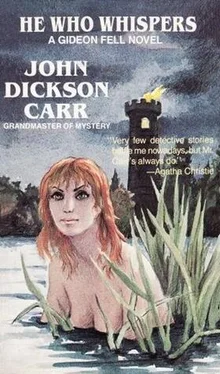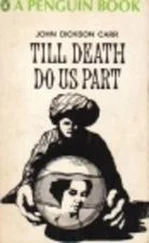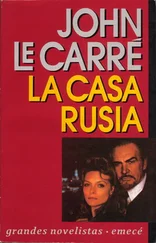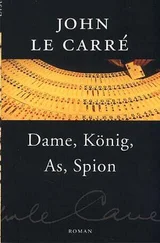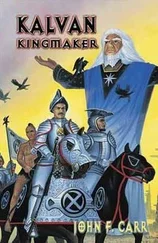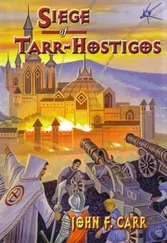“I warned you against her?”
“Yes. Didn't you?”
“Oh!” breathed Barbara Morell.
She had drawn back a little from him, with the dark cylinder-curved walls flying past outside the windows. She breathed that monosyllable in a tone of utter stupefaction, as though she could not believe her ears.
Miles had an instinct that the whole situation was going to change again: that something was not only wrong, but deadly wrong. Barbara stared at him, her mouth open. He saw comprehension come into the grey eyes, slow incredulous comprehension as they searched his face; then half-laughter, a wild helpless gesture . . .
“You thought,” she insisted, “that I--?”
“Yes! Didn't you?”
“Listen,” Barbara put her hand on his arm, and spoke with clear-eyed sincerity. “I wasn't trying to warn you against her. I wasn't wondering if you could help her. Fay Seton is . . .”
“Go on!”
“Fay Seton is one of the most completely wronged, bedevilled, and—and hurt persons I've ever heard of. All I was trying to find out was whether she might have committed the murder, because I didn't know any details about the murder. She'd have been justified, you know, if she had killed someone! But you could tell, from what Professor Rigaud said, she hadn't done that, either. And I was at my wits' end.”
Barbara made a short, slight gesture.
“If you remember, at Beltring's, I wasn't even so much as interested in anything except the murder. The things that went before it, the charges of immorality and—and the other ridiculous thing that almost got her stoned by the country people, didn't matter. Because they were a deliberate, cruel frame-up against her from start to finish.”
Barbara's voice rose.
“I knew that. I can prove it. I've got a whole packet of letters to prove it. That woman's been in hell from lying gossip that prejudiced her in the eyes of the police, and may have ruined her life. I could have helped her. I can help her. But I'm too much of a coward! I'm too much of a coward! I'm too much of a coward!”
Chapter XV
“Leicester Square!” sang the guard.
One or two persons got in. But the long, hot Underground car was still almost empty. The Australian soldier snored. A button tinkled, in communication with the driver far away at the front; the doors rolled shut. It was still a good distance to Camden Town.
Miles didn't notice. He was again in the upstairs room at Beltring's Restaurant, watching Barbara Morell as she faced Professor Rigaud across the dinner-table: watching the expression of her eyes, hearing that curious exclamation under her breath—incredulity or contempt—dismissing as of no importance the statement that Howard Brooke had cursed Fay Seton aloud in the Credit Lyonnais Bank.
Miles was fitting every word, every gesture, into a pattern that hitherto had baffled him.
“Professor Rigaud,” continued Barbara, “is very observant at seeing and describing the outside of things. But he never once realizes, he really doesn't, what's inside . I could have wept when he said jokingly that he was a blind bar and owl. Because in a sense that's perfectly true.
“For a whole summer Professor Rigaud stood at Harry Brooke's shoulder. He preached at Harry; he moulded him, he influenced him. Yet he never guessed the truth. Harry, for all his athletic skill and his good looks—and,” said Barbara with contempt, “they must have been rather pretty-boy good looks—was simply a cold-hearted fish determined to get his own way.”
(Cold-hearted. Cold-hearted. Where had Miles heard that same term before?)
Barbara bit her lip.
“You remember,” she said, “that Harry's heart was set on becoming a painter?”
“Yes. I remember.”
“And he would argue with his parents about it? And then, as Professor Rigaud described it, he would hit a tennis-ball like a streak or go out on the lawn and sit with a 'white-faced brooding swearing look?'”
“I remember that, too.”
“Harry knew it was the one thing on earth his parents would never consent to. They really did idolize him, but just because they idolized him they'd never consent. And he wasn't—wasn't man enough to leave a lot of money and strike out for himself. I'm sorry to talk like this,” Barbara added helplessly, “but it's true. So Harry, long before Fay Seton came there, set about scheming in his horrible little mind for a way to compel them to consent.
“Then Fay arrived there to be his father's secretary, and he did see a way at last.
“I—I've never met the woman,” Barbara confessed broodingly. “I can only judge her through letters. I may be all wrong. But see her as passive and good-natured; really inexperienced; a bit of a romantic, and without much sense of humour.
“And Harry Brooke thought of a way. First he would pretend to fall in love with Fay . . .”
“Pretend to fall in love with her?”
“Yes.”
Dimly Miles began to see the design take form. And yet it was inevitable. As inevitable as . . .
“Tottenham Court Road!”
“Stop a bit,” Miles muttered. “The old proverb says that there are two things which will be believed about any man, and one of them is that he has taken to drink. We might add that there are two things which will be believed about any woman, and both of them are . . .”
“Both of them,” admitted Barbara, “are that she has a horribly bad character”--the colour went up in her face--”and probably carries on with every man in the district. The more quiet and unobtrusive she is, especially if she won't look you straight in the eye or enthuse over a lot of silly games like golf or tennis, then the more people are convinced there must be something in it.
“Harry's scheme was as cold-blooded as that. He would write his father a lot of vilely phrased anonymous letters about her . . .”
“Anonymous letters!” said Miles.
“He would start a whispering campaign against her, connecting her name with Jean This and Jacques That. His parents—they weren't too keen already about his marrying anyone—would get alarmed at the scandal and beg him to break it off.
“He'd already prepared the way by inventing a story, absolutely false, that she'd refused him the first time he proposed marriage with the hint that there was some terrible secret reason why she couldn't marry him. He told that tale to Professor Rigaud and poor old Professor Rigaud retailed it to us. Do you recall that?”
Miles nodded.
“I also recall,” he said, “that when I mentioned the same story to her last night, she . . .”
“She—what?”
“Never mind! Go on!”
“So the scandal would gather, and Harry's parents would beg him to break off the marriage. Harry would only look noble and refuse. The more he refused, the more frantic they would be. Finally he would be crushed, practically in tears, and he would say: 'All right, I'll give her up. But if I do consent to give her up, will you send me to Paris for two years to study painting so that I can forget her?'
“Would they have agreed then ? Don't we all know what families are? Of course they would have! They'd have seized at it in blessed relief.
“Only,” added Barbara, “Harry's little plan didn't work out quite like that, you see.
“The anonymous letters horribly worried his father, who wouldn't even so much as mention them to his mother. But Harry's whispering campaign in the district almost failed completely. You know that French shrug of the shoulder and the 'Et alors?' which just about correspond to, 'So what?' They were busy people; they had crops to harvest; such things harmed no one if they didn't interfere with work; so what?”
Читать дальше
